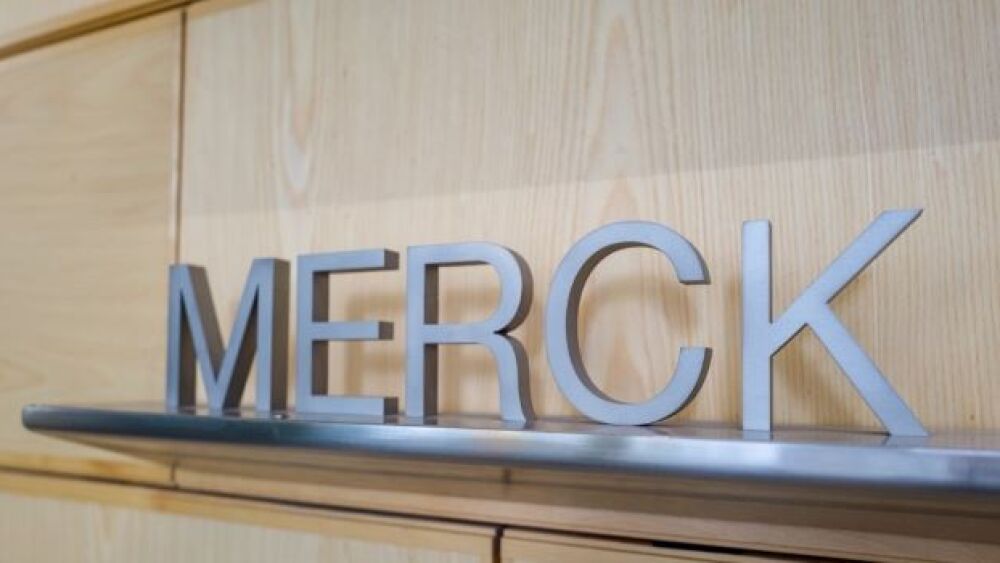There is a noted discrepancy between the price the U.S. government has agreed to pay Merck for the drug and the actual manufacturing costs.
Smith Collection/Gado/Getty Images
On October 1, Merck & Co. sparked excitement with the announcement that the experimental COVID-19 drug, molnupiravir, it is developing with Ridgeback Biotherapeutics cut the risk of hospitalization and death in newly diagnosed adult patients by 50% in a Phase III trial. Now, questions are arising about the potential cost of the pill.
There is a noted discrepancy between the price the U.S. government has agreed to pay Merck for the drug and the actual manufacturing costs. In June, Merck signed a $1.2 billion deal with the U.S. government for molnupiravir, providing it receives emergency use authorization (EUA) from the U.S. Food and Drug Administration (FDA). With a full five-day course of treatment, the purchase would provide enough medicine to treat 1.7 million people at $712 per unit.
However, according to Melissa Barber, a doctoral candidate in the global health and population department at Harvard University and Dzintars Gotham, a World Health Organization (WHO) consultant, the estimated actual cost of manufacturing for five days of treatment is $20.
While this type of inconsistency is not outside the norm, and it could be anticipated that the U.S. government will pick up the tab for molnupiravir, or at least a majority of it, the government’s coffers are not in the best of shape to begin with as can be evidenced by the current debt ceiling discussions. The cost will also inevitably be passed on to the American taxpayer.
Even with this money necessarily spent, the allocated doses won’t last long, according to Andrew Hill of the department of pharmacology and therapeutics at the University of Liverpool, who has researched manufacturing costs for other drugs.
“With 100,000 new infections per day in the U.S., a unit price of $700 per treatment course would create a huge burden on budgets if this drug was used to prevent new infections as well. The 1.7 million doses would be used up inside a month,” Hill told STAT News.
While the cost is steep, it is arguably cheaper than some of the alternatives. In January, the U.S. government agreed to pay $2.63 billion for 1.25 million doses of Regeneron’s monoclonal antibody cocktail, which works out to $2,100 per dose, and Gilead’s remdesivir can cost $3,100 for a 5-day course of treatment.
There does appear to be room for the Biden administration to step in and attempt to lower the price point. Molnupiravir was discovered and developed by the Emory Institute for Drug Development (EIDD), which, between 2013 and 2020, was awarded an estimated $35 million in grants by the U.S. government. EIDD has published five U.S. applications concerning a molnupiravir parent compound, including one about its potential to treat COVID-19. The acknowledgment of government funding therein, according to advocacy group Knowledge Ecology International, opens the door for the administration to negotiate reasonable funding with Merck.
Of course, all of this is merely conjecture until the drug is authorized under EUA. White House Chief Medical Advisor Dr. Anthony Fauci told CNBC on Friday that they expect the FDA to complete their review of the data “as quickly as they possibly can.”
At the time of the top-line data release, Merck CEO and President Robert Davis stated that the company was optimistic molnupiravir could become an important medicine as part of the global effort to fight the pandemic. If affordability is a question in the U.S., the issue becomes even more consequential when it comes to reasonable access for developing countries.
A Merck spokesperson told STAT News that the company has already inked voluntary licensing agreements with eight large global generic manufacturers, which include Aurobindo Pharma and Dr. Reddy’s Labs, both of which are based in India. Each of the manufacturers will set its own prices.






